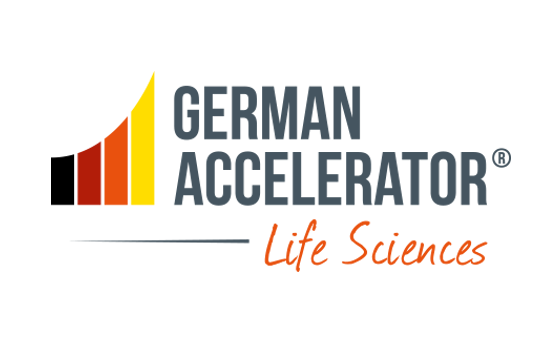 labfolder and the German Accelerator Life Sciences (GALS), an initiative supported by the German Federal Ministry for Economic Affairs and Energy (BMWi), have announced the initiation of an extensive collaboration supporting the company's expansion into the North American markets. With thousands of users and a growing number of customers in the U.S. already, the newly established Cambridge office will accelerate those efforts and support customer relations.
labfolder and the German Accelerator Life Sciences (GALS), an initiative supported by the German Federal Ministry for Economic Affairs and Energy (BMWi), have announced the initiation of an extensive collaboration supporting the company's expansion into the North American markets. With thousands of users and a growing number of customers in the U.S. already, the newly established Cambridge office will accelerate those efforts and support customer relations.
labfolder digital lab notebook software was developed to support research teams in managing their vast amounts of data, and being more productive in the lab. The company is one of the world's leading electronic lab notebook (ELN) platforms with a strong user base within life sciences, biotech and pharma.
"The Boston/ Cambridge biotech hub is an important market for the laboratory supply industry with hundreds of top-tier biotech and pharmaceutical companies, the top 4 NIH-funded hospitals in the U.S., and 122 colleges and universities. Academic research institutions as well as industrial R&D giants worldwide are looking towards Boston as one of the most innovative regions. For us it is not only a great opportunity, but also an honor being able to support research teams with our software, and helping them to focus on making groundbreaking discoveries," said Simon Bungers, Co-founder and CEO of labfolder.
"Since the first public release of our software in 2013, we have seen high user growth in the U.S. and just within the last year we have increased our customer-base within this market by 10-fold. Researchers everywhere are looking for a simple, easy-to-use solution to manage the vast amounts of data produced in a lab each year and store them in a safe and accessible way," added Florian Hauer, Co-founder and COO of labfolder. "We are planning to aggressively expand our US customer base and our newly established U.S. office as well as our collaboration with the GALS team will help to deliver on these strategic plans."
As of 2014, labfolder offers a standalone server solution next to the cloud version. Customers can also benefit from added support for managing extensive datasets, team management, and collaboration features, as well as a material database to manage inventory. Offering these features paved the way to the company's success.
labfolder customers include Germany’s most renowned research organization, the Max-Planck-Society as well as Europe's large university hospital, the Charité Berlin, among others.
"labfolder won the trust of leading research institutions and companies in Germany," says Christoph Lengauer, CEO of GALS. "I am convinced that the labfolder team will be able to leverage this success for partnering here in Cambridge and the U.S. in general." GALS will provide strategic as well as operational support for labfolder and leverage its industry network to support the company’s further expansion into the U.S. market.
About labfolder GmbH
labfolder builds a well-designed productivity platform for research teams, supporting scientists in their quest to make groundbreaking discoveries.
For scientific research teams which have always documented their invaluable research on paper, and which would like to manage their increasingly large and complex research data sets more efficiently, labfolder is a productivity & collaboration platform for the lab, that makes it easier to record findings and make new discoveries. Unlike the traditional paper lab notebook, labfolder makes it easy to create, find, share, discuss & validate research data as a team.
labfolder is used by more than 15,000 international scientists in all disciplines. It is used by academic as well as industrial and pharmaceutical scientists in R&D, analysis, and production labs. The cloud service is free for teams up to three users, for more team members and advanced features different pricing plans for academia and enterprise labs are available at www.labfolder.com/pricing
labfolder was founded in 2013 by molecular biologist Simon Bungers (CEO) and biophysicist Florian Hauer (COO), who were later joined by Yannick Skop (CCO) and Mario Russo (CTO). The increasing demand of digital solutions for managing growing amounts of data in a regulated environment has resulted in the continuous growth of labfolder, which is supported by investors such as Peppermint Ventures, the IBB Beteiligungsgesellschaft, Vogel Ventures and a consortium of expert business angels.
About German Accelerator Life Sciences
The German Accelerator Life Sciences (GALS) is an initiative of the German Federal Ministry for Economic Affairs and Energy (BMWi), with the goal of helping German startups and young companies succeed in the global marketplace. GALS offers support in multiple areas, from free office space in the world’s leading life science innovation hub, to mentoring and advising from industry experts and experienced leaders. GALS opened its doors in October 2015 and has its headquarters in Cambridge, Massachusetts.
For more information, visit: www.GermanAccelerator.com/Life-Sciences